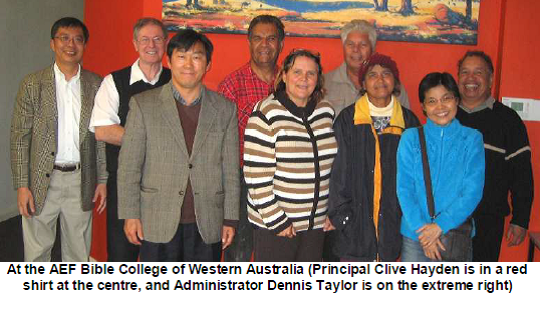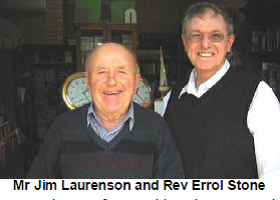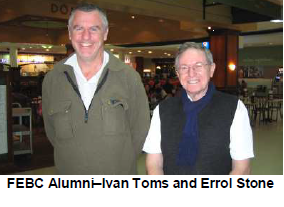Earnestly Contending for the Faith
Rev Dr Jeffrey Khoo
The Apostle Jude in his epistle wrote, “Beloved, when I gave all diligence to write unto you of the common salvation, it was needful for me to write unto you, and exhort you that ye should earnestly contend for the faith which was once delivered unto the saints.” (Jude 3). Jude shared with his readers how he felt when he began to write this epistle, He said he “gave all diligence.” This word spoudeen has the sense of making haste (Mark 6:25, Acts 20:16). Jude felt an urgent need, and an intense burden to write about the “common salvation.” Why did he feel this way? Evidently, the Church was beginning to be infiltrated by false teachers who were attempting to destroy the Christian faith. So, Jude thought it necessary to remind the believers of the salvation that all born again believers possessed. The word used to describe the salvation is koinees. Here, it refers to something that is shared by all. Qualitatively and quantitatively speaking, every Christian receives the same salvation in the Lord Jesus Christ. There is no such thing as different degrees of salvation; one is “more saved,” and another is “less saved.” Jude wanted to write on the doctrine of salvation (soteriology) in all its various aspects: justification, sanctification, glorification etc. This was probably so because he wanted the believers to be sure of what they have believed and whom they have believed in so that they might be freed from any doubt about their salvation when false teachers try to tempt them away from the Lord Jesus Christ.
At first, Jude wanted to teach the fundamentals of the Christian Faith, but later felt constrained by the Holy Spirit, in view of the potentially dangerous situation the Church was then facing, to apply the doctrine of salvation instead. The Christians by this time were already in possession of the great salvation epistles of the Apostle Paul, namely Romans, Galatians, and Hebrews. Now there was a need to defend that sacred body of truth. The subject he originally chose to speak on was retained. What Jude changed was his theme, from the Principles of the Faith (i.e. know it), to the Protection of the Faith (i.e. defend it).
Jude said that he was duty bound—anagken—to write the Epistle in view of end-time dangers that surrounded the Church. He strongly urged (parakaloon) the believers to “earnestly contend” for the faith. The word “earnestly contend” is significant. It is the Greek epagoonizesthai which is a strong word for “struggle.” It is a call for one “to exert intense effort on behalf of something.” Although it is only found here in the NT, its root agoonizomai occurs seven times in Luke 13:24, John 18:36, 1 Cor 9:25, Col 1:29, 4:12, 1 Tim 6:12, 2 Tim 4:7. It is a military word and is usually translated as “fight.” For example, Paul commanded Timothy, “Fight the good fight of faith” (1 Tim 6:12). In the Christian context, it has to do with spiritual warfare. It has nothing to do with guns and grenades (cf John 18:36). We are called to defend the faith against false teachers, heresies, and worldliness by means of the Word of God which is the Sword of the Spirit (Eph 6:17). We earnestly contend for the faith by preaching, writing, and conducting ourselves according to God’s Word.
This battle for the faith is going to be a long drawn affair. We need to keep on contending for the faith day by day. There should be no relaxing, but a constant, consistent, and continual struggle for the purity of the Church and her message. It is agonising work. A defender of the faith should not expect to find overwhelming support from the general populace. When a person believes in the Holy Bible and obeys it, he goes against the philosophy and praxis of a God-denying and Gospel-hating world. Persecution in the form of verbal abuse, discrimination, incarceration, etc can be expected. The Christian contender is called to endure it all and remain faithful to the Lord Jesus Christ and His Word.
And what are we to earnestly contend for? It is for THE once for all delivered unto the saints FAITH. Faith may be understood in two ways: in the subjective sense of personal faith (i.e. belief, trust, submission, surrender etc), or in the objective sense of the Christian faith (i.e. the Christian religion, the body of truth that Christianity is based on). Jude here is referring to the latter. This Faith that Jude refers to is contrasted with other faiths in that it is THE ONLY TRUE FAITH or THE ONLY TRUE RELIGION. True forgiveness of sin with its promise of eternal life is found ONLY IN THE LORD JESUS CHRIST (John 14:6, 1 Tim 2:5). This fact of salvation, and content of faith may not be altered. It is THE TRUTH, and TRUTH IS UNCHANGEABLE. Christian Theology is settled and inscripturated in the 66 books of the Bible. None is to add to or subtract from it (Rev 22:18-19). There is no such thing as “new” theology, Spurgeon was absolutely correct when he said, “There is nothing new in theology except that which is false.”
Why do we need to earnestly contend for the faith? Verse 4 tells us why, “For there are certain men crept in unawares, who were before of old ordained to this condemnation, ungodly men, turning the grace of our God into lasciviousness, and denying the only Lord God, and our Lord Jesus Christ.” The Church has been infiltrated by wicked men. These men have already “crept in.” The word pareisedusan is interesting. It is a combination of the prepositions para meaning “alongside,” or “beside,” and eis meaning “into,” and the verb duoo meaning “to go down,” or “to sink.” It has the idea of stealthy intrusion by camouflage. These people by clever subterfuge, join the ranks, mingle with the people, and gradually blend in with the crowd. They are wolves in sheep’s clothing. Jesus already warned, “Beware of false prophets, which come to you in sheep’s clothing, but inwardly they are ravening wolves” (Matt 7:15). The Apostle Paul likewise warned, “Take heed … For I know this, that after my departing shall grievous wolves enter in among you not sparing the flock. Also of your own selves shall men arise, speaking perverse things, to draw away disciples after them” (Acts 20:28-30). The Apostle Peter also warned, “But there were false prophets also among the people, even as there shall be false teachers among you, who privily shall bring in damnable heresies, even denying the Lord that bought them, and bring upon themselves swift destruction” (2 Pet 2:1). Be warned and beware!
A Fourfold Ministry Downunder
Faith Presbyterian Church (Perth, Australia) under the pastoral care of the Rev Errol Stone celebrated its 10th anniversary with a Bible seminar and a thanksgiving dinner and service, 11-13 September 2009. True Life Bible-Presbyterian Church was represented by Mrs Ivy Tow, Dn and Mrs Charles Kan whose son Benjamin is pursuing graduate studies at Edith Cowan University, and Deborah & Judith who ministered to the congregation with their songs of praise. I was asked to preach the gospel on Friday night just before the thanksgiving dinner. On Saturday, I presented 5 lectures on the 2nd Coming of Christ. The film on An Yohan, the blind Korean pastor, was screened. The day ended with an evening of music and praise with special items from the children and young people of Faith Church, from Deborah & Judith, and from the Kan family. I was privileged to bring the Word of God to the people on the Lord’s Day, speaking from Revelation 2:8-11, “Be Thou Faithful.” After the service, we visited an old folk’s home to encourage the residents there. That night we had a Japanese buffet dinner to welcome the new members of the church.
Faith Presbyterian Church has been blessed by the faithful ministry of the Rev and Mrs Errol Stone since its founding in 1999. The Rev Stone is one of FEBC’s outstanding graduates having earned his BTh in 1998 and a MMin in 2008. The Lord has blessed him with a fourfold ministry of the Word—preaching, teaching, writing and lately bookselling. Besides preaching Sunday after Sunday, feeding the flock of God, a number of whom are students from Singapore studying in the various universities in Perth, Rev Stone also teaches at the Aboriginal Evangelical Fellowship (AEF) Bible College of Western Australia. The College was recently blessed with a new building housing the office, library, and classrooms. Pastor Clive Hayden is the Principal and Mr Dennis Taylor the Administrator. Mr Taylor had visited FEBC on 2 occasions, taking the Daily Vacation Bible College classes in 2008 and 2009. We were very happy to visit the Aboriginal Bible College and did not go empty-handed. Like the wise men from the East bearing gifts, we donated to the College 10 KJV study Bibles, and 2 hardbound volumes of FEBC’s theological journal—The Burning Bush. It is encouraging to know that the Aboriginal Bible College takes a strong stand for the KJV.
Recently, the Rev Stone succeeded the Rev John MacKenzie as editor of the Faith & Freedom magazine. The Rev MacKenzie who is suffering from terminal cancer has handed over to the Rev Stone not only the editorship of the Faith & Freedom magazine but also his bookroom ministry of many years. The bookroom has a fine collection of God-fearing and Bible-believing books carefully selected and stocked by the Rev MacKenzie. Noting Rev Stone’s close association with FEBC, the Rev MacKenzie saw it fit to bequeath to him his two important literature ministries and even his personal library. The Rev Stone is ably assisted by Mr Jim Laurenson who is the bookroom manager.
We do not forget Eld and Mrs Harold Watkins who despite their age are a pillar of strength in the work of Faith Presbyterian Church. We also enjoyed the fellowship of Ivan Toms, an FEBC graduate, who flew in from Cairns, and Dn and Mrs John Meimaris of Bethel Bible-Presbyterian Church, Melbourne, and all the very hospitable brethren of Faith Presbyterian Church. What a joyous gathering! Praise the Lord! JK





